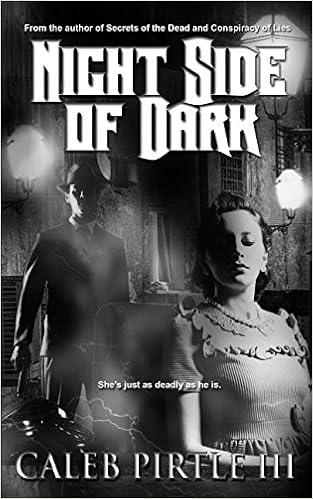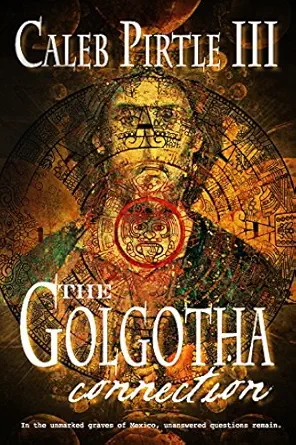 Why do writers write? I asked independent writers what they like best and least about writing. In this installment, Caleb Pirtle tells us what makes his writing day.
Why do writers write? I asked independent writers what they like best and least about writing. In this installment, Caleb Pirtle tells us what makes his writing day.
Which element of fiction is most important to you as a writer:
Characters are my primary focus in the writing of any novel. Most of the characters generally come and settle down in my mind long before I have an idea for the storyline. I work with them. I visit with them. I get to know them like family. Then when I sit down to write those first chapters of a book, the characters all come out to fill up the pages when they are needed. As a result, I don’t have to worry about the fine points of a novel. The characters are in charge of the plot, the action, and the sex. I know my major characters well. They are living and breathing. What fascinates me are the minor players who work their way into a story and refuse to leave. They are in the novel for a reason, and I have no idea what it is until they do what they came to do. However, since most of my thrillers take place in the 1930s and 1940s, I am a diligent researcher because, to be both credible and believable as a writer, it is critical for me to have the setting, the culture, the dress, and the weapons as authentic as possible. Details are vital. There is no room for a mistake.
What part of writing do you spend the most time on: research, writing, editing, making coffee or cleaning your work space?
I spend more time on editing and revising a novel than I do writing it. I research as I go along and work hard and fast to get the bones of the story on the page. Then come the editing, the re-writing, and the revisions.
Which of these do you enjoy most?
I look forward to the re-writing, especially after having a manuscript at the mercy of an editor, a critique group, or a beta reader. It gives me a chance to add the highlights, build better back stories for the major characters, fill the holes I left in the story, and even change directions of the plot a time or two.
What do you wish you had to do less?
The final edits are the most miserable part of the process for me. By then, I have read the story so many times the joy of writing disappears. It is like slogging my way through mud. I quit paying attention to the story at that point and simply become a mechanic with a wrench and pliers to tighten up the narrative and dialogue. When I write the novel, I have blood on my hands. When I finish editing, all I have is grease.
Which of your books or other works are you personally happiest with? Why?
 I am happiest with my Ambrose Lincoln trilogy: Secrets of the Dead, Conspiracy of Lies, and Night Side of Dark. They are far different and far darker from anything I’ve ever written before. The novels are noir thrillers set during the turbulent days of World War II. I love the period. I love the suspense that can be derived from missions in parts of the world where no sane man would ever travel. But my hero is not really sane. The government has used electric shocks to the brain to erase his memory. Their reasoning is simple. If a man has no conscience and is not afraid to die, he will tackle whatever assignment he is given without backing down, flinching, or blinking an eye. Before each mission, his memory is wiped clean again. But does he remember more than the government realizes?
I am happiest with my Ambrose Lincoln trilogy: Secrets of the Dead, Conspiracy of Lies, and Night Side of Dark. They are far different and far darker from anything I’ve ever written before. The novels are noir thrillers set during the turbulent days of World War II. I love the period. I love the suspense that can be derived from missions in parts of the world where no sane man would ever travel. But my hero is not really sane. The government has used electric shocks to the brain to erase his memory. Their reasoning is simple. If a man has no conscience and is not afraid to die, he will tackle whatever assignment he is given without backing down, flinching, or blinking an eye. Before each mission, his memory is wiped clean again. But does he remember more than the government realizes?
What part of writing or publishing do you think you could help other writers with?
What I enjoy most about conferences, workshops, and critique groups is having the time to help beginning writers better understand the fine points of writing—from sharpening dialogue to building believable characters, making sure the hooks throughout the novel keep the reader reading, knowing the intricacies of point of view, and realizing the power of storytelling.
Caleb Pirtle III has always considered himself to be a thief. “I’ve spent my whole life stealing bits and pieces of other people’s lives, experiences, and memories, then writing them down in newspaper stories, magazine articles, and books. both fiction and nonfiction. I would be lost if they had not come along. I am convinced that everyone who walks across the street has a great story to tell if someone will just take the time to listen.”
![]()
He has been a reporter at the Fort Worth Star-Telegram, winning the Associated Press, William Randolph Hearst and Headliner’s awards, and the chief of media relations for the Texas Tourist Development Agency. He was travel editor of Southern Living magazine, and then editorial director for Dockery House, a Dallas publisher. Two years ago, he founded Venture Galleries with his wife, Linda, and author Stephen Woodfin, to help authors across the US promote, market and sell their books.
Caleb is the author of more than 60 fiction and non-fiction books. Among his latest best-selling titles are Gamble in the Devil’s Chalk, the Ambrose Lincoln series, The Golgotha Connection and Little Lies.



